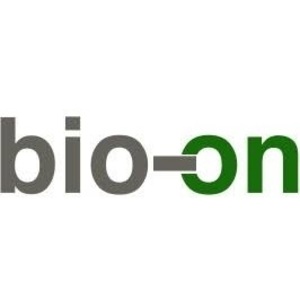Bioplastic producer Bio-on installs Siemens technology




August 9, 2018
BY Bio-on S.p.A.
Bio-on S.p.A., listed on the AIM segment of Borsa Italiana and operating in the high quality, 100 percent natural and biodegradable bioplastic sector, has chosen Siemens automation and plant control and management systems for its bioplastic production plant at Castel San Pietro Terme, near Bologna, Italy. With the goal of making the production process more efficient and eliminating errors, the hub looks set to be one of the best examples of Industry 4.0 in the green chemicals and PHAs (polyhydroxyalkanoates) bioplastic sector.
"Bio-on is a wonderful example of industry finding a way of being sustainable with plastic," says Giuliano Busetto, country division lead digital factory and process industries and drives at Siemens Italia and administrator of Siemens Industrial Software Srl. "Industry can benefit the country's sustainability through the natural production of biodegradable biopolymers. We are proud to support the development of this industry through our innovative technology, through integration between the world of automation, process control and Information Technology, through our industrial software platforms, bolstered by our unique positioning throughout the life cycle of the production process."
Bio-on's innovative idea was to build, with the support of Siemens, a digital model of the plant (the so-called digital twin), placing automation and data at the heart of the design. "The domination of steel over software should end," says Bio-on chairman and CEO Marco Astorri. "Industrial design must be centered on automation because only then can true efficiency be achieved, not just in energy terms but also plant optimization. We are confident that this collaboration with Siemens can be extended to all our new bioplastic production plants built in the future around the world." The Castel San Pietro Terme plant design started out with plant management and automation systems before moving on to plant engineering and service structures. This process makes a major contribution towards changing the mentality of designers and creating new cross-sector skills among engineers.
Advertisement
Advertisement
Siemens' supervision, control and automation technologies are at the heart of the plant that Bio-on recently opened in Italy—the world's first plant producing special bioplastics for cosmetics uses: biopolymer micro-spheres made by fermenting non-pathogenic bacteria fed on plant waste (sugar beet, glycerol, fruit, potatoes and sugar cane waste); a 100 percent natural and sustainable supply chain with zero impact on the environment.
All the PHAs bioplastics developed by Bio-on are made from renewable plant sources with no competition with food supply chains. They can replace a number of conventional polymers currently made with petrochemical processes using hydrocarbons; they enable the same thermo-mechanical properties as conventional plastics with the advantage of being completely eco-sustainable and 100 percent naturally biodegradable.
The technology behind the plant
Advertisement
Advertisement
Siemens control and supervisory systems ensures a number of advantages in plant management, in terms of production, economic, energy, production chain reliability, environmental and, last but not least, security. These systems enhance the skills and experience of the technicians overseeing the production process and, using data generated by the machines, can take accurate decisions based on real information. This helps reduce or eliminate errors and achieve extremely high production standards.
Bio-on has entrusted process control at its Castel San Pietro Terme plant and automation management to the Siemens Simatic PCS7 DCS in order to ensure more effective programming. The process data archiving system, built into the PCS7 and called MIS (Management Information System), provides real-time analysis and evaluation to optimise production over the short and long term. An MIS acquires process data, laboratory analysis data, data on fuel consumption, efficiency, wear and tear of components, etc. and makes it available for display in various significant and intuitive graphic forms. This data can be shared in a network in the form of daily, weekly or monthly summary tables and is used to generate trends and reports.
Related Stories
The U.S. Department of Energy Bioenergy Technologies Office (BETO) announced up to $23 million in funding to support research and development (R&D) of domestic chemicals and fuels from biomass and waste resources.
The U.S. DOE has announced its intent to issue funding to support high-impact research and development (R&D) projects in two priority areas: sustainable propane and renewable chemicals and algal system cultivation and preprocessing.
Sens. Sherrod Brown, D-Ohio, and Pete Ricketts, R-Neb., in August introduced the Renewable Chemicals Act, a bill that aims to create a tax credit to support the production of biobased chemicals.
The Chemical Catalysis for Bioenergy Consortium, a consortium of the U.S. DOE’s Bioenergy Technologies Office, has launched an effort that aims to gather community input on the development of new biomass processing facilities.
USDA on March 8 celebrated the second annual National Biobased Products Day, a celebration to raise public awareness of biobased products, their benefits and their contributions to the U.S. economy and rural communities.
Upcoming Events










